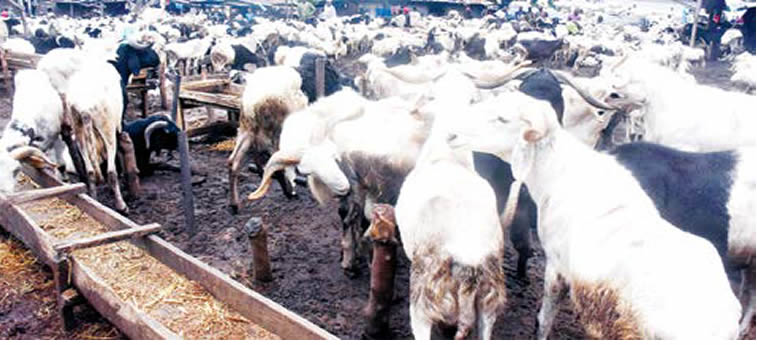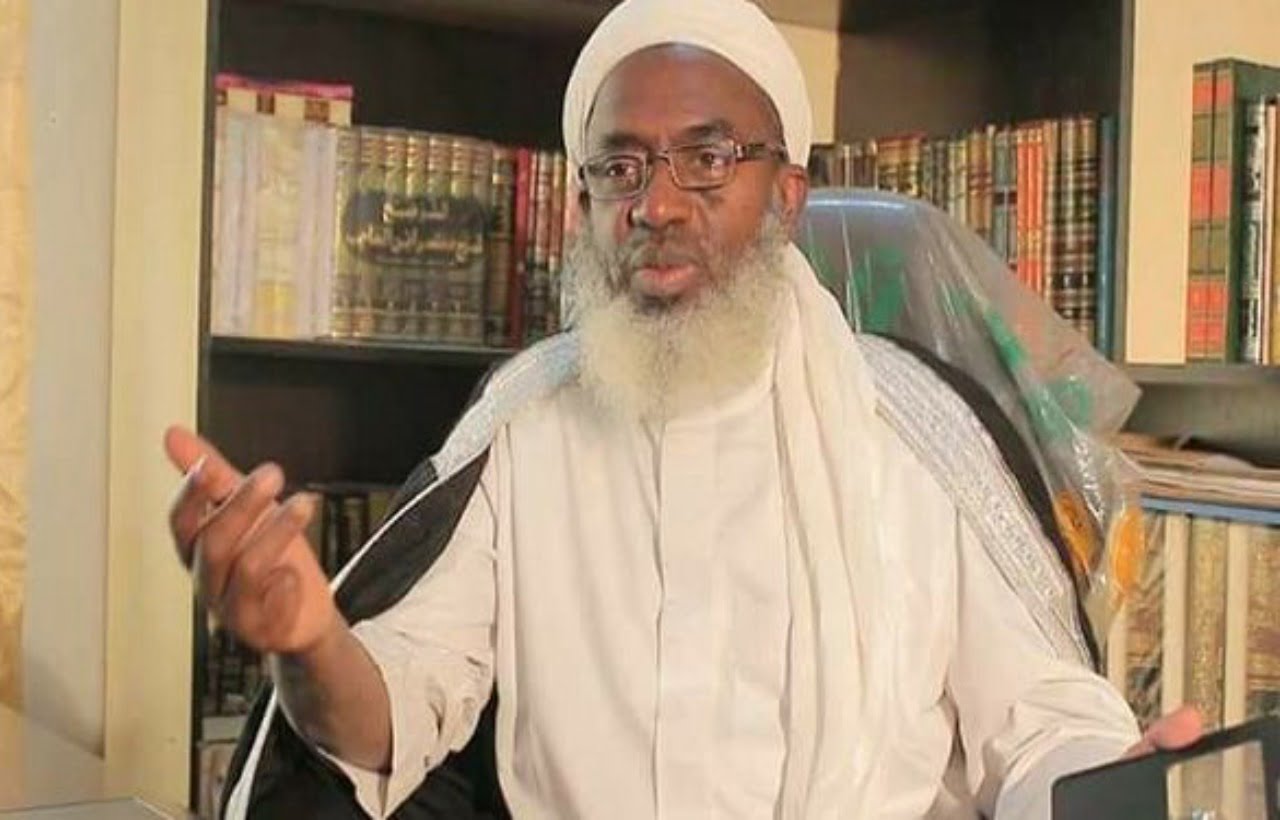Ram sellers are feeling effects of the fuel subsidy removal as they record low sales and many buyers are not turning up ahead of Sallah, TOSIN OYEDIRAN writes
The Muslim festival, Eid al-Adha, also known as the “Festival of Sacrifice,” involves the ritual sacrifice of an animal, usually a goat, sheep, cow, or camel, to commemorate Prophet Ibrahim’s (Abraham’s) willingness to sacrifice his son as an act of obedience to God.
With barely two days until the festival, the prices of permissible animals for sacrifice have skyrocketed as our correspondents observe in different parts of the country.
The PUNCH reports that the May 29 declaration of President Bola Tinubu that “subsidy is gone” has eventually put paid to the decade-long tussle over the removal of subsidy on Premium Motor Spirit, popularly called petrol.
Petrol prices jumped from N195/litre to over N500/litre in all states and the Federal Capital Territory, two days after the President’s pronouncement during his inaugural speech as Nigeria’s 16th President.
A Nigerian-based business administrator, Mrs Kaosara Fadesere, said that, if consumers were aware and educated that there would be a removal of subsidy they might actually work towards buying it ahead, like in January, and stock it until this time instead of paying this exorbitant price.
Being a Muslim too, she said, “I knew someone who bought five rams in January and each was less than N50,000, and now, just five months later, none goes for less than N150,000. So if we had been aware of the removal of subsidy and how it would invariably affect transportation costs, we might have planned ahead.
“However, it is only a consumer who is financially buoyant that will be able to do that, that would be able to spare some unused money to get rams or goats, months ahead before the Eid. Even if they’d announced it to all Nigerians, many Nigerians would still not buy because of the nation’s economic instability. Imagine rams going for five to ten times higher and even more than our minimum wage.
“Also, the planning would only affect the ram; what about the many other things needed for Eid, whose prices also skyrocketed?”
When asked to consider the market dynamics and speculations to determine whether or not the sellers were going overboard with making excessive profits, she quizzed, “Why do they sell less, months before Eid, double and triple the price weeks/days before Eid, and eventually settle for less after Eid?
“It is as a result of demand. It will be cheaper when the demand is low but at higher prices when it’s high. Therefore, after Eid, when demand reduces, it drops. Thus, it can be said that the fuel subsidy removal isn’t the real and only cause. It’s the demand. It is a marriage of demand and the multiplier effect of transportation costs and the cost of production (feeding and cleaning). The fuel pump prices jumped from around N190 to N550, or even more. And business owners must maximise profit. That’s a realistic proposition. What you called ‘excessive profits’ that sellers are making is a result of demand. That’s basic economics. May Allah ease our affairs.”
In her remarks, a buyer at the Kara livestock market in Ajase-Ipo, Kwara State, Mrs O.N. Bakare, said she had a budget to buy from and did not plan on exceeding it, with or without the subsidy removal.
“It is important to note that various other factors, including local supply and demand, animal prices, livestock market regulations, and consumer purchasing power, can influence the sales and price of cattle during the Eid festival. These factors tend to have a greater influence on the pricing and availability of animals for ritual sacrifice than fuel subsidies,” she said.
Bakare, who identified herself as a secondary school teacher in Ilorin, Kwara State, said that has been her custom for the last six years as she can’t pay the exorbitant prices they are sold at in Osogbo, where she and her family would join their extended family to celebrate the festival.
She added, “The relative effect of the naira devaluation and fuel subsidy removal led to an increase in transportation costs, affecting the overall cost of goods and services, including transportation-dependent industries.
“These economic factors are influenced by consumer preferences and market competition. In areas where there are multiple cattle markets with numerous sellers, the biting effect won’t be much. That is why I come down to Ajase to buy it since it is closer to Osogbo, where it would be transported. Cities and developed areas might face more significant challenges. There would be few markets to survey and fewer options to choose from.
“Obviously, demand and supply dynami
“Sales have been very poor,” said Baba Ahmed, a seller at the Kara Market.
“Nobody is lining up to buy anything. Take a look about; you’ll notice how boring the market is. The withdrawal of subsidy has a large impact. I have roughly 120 rams and goats in total, but I haven’t sold more than 50 of them,” he lamented.
Similarly, an Ikire-based social analyst and farmer, Mr Abdullahi Adegboyega, agrees that a hike in price is the natural response to an increase in demand for any commodity and that it wouldn’t be wrong to attribute the current hike in the price of rams and other in-demand livestock to the Eid festival.
He said, “One might fall into the error of being narrow in one’s approach if the prevailing economic situation is not factored into one’s analysis. Yes, the current high price of PMS and other fuel being used to power automobiles, occasioned by the deregulation of the downstream sector of the economy, has a much greater role to play at this time.”
Adegboyega noted that livestock production monopolisation in the North will always affect the market here in the western part of the country. This is because he identified that consumer awareness and planning are essential as much as livestock production must be taken serious in the West to reduce the overdependence on the North.
He stated that “The monopoly of livestock production by northern Nigeria and the greed of southerners who travel to the North to bring in the sacrificial animals to maximise profit contribute more to the hike. Consumer awareness and planning, of course, is another thing. I’ll use myself as an example here. Having understood the dynamics that play out vis-à-vis the price of rams during Eid for many years, I planned ahead and bought my rams two months earlier, since I know my farming and animal husbandry basics. As of now, the size of the ram I bought for N60,000 and N70,000 now goes for nothing less than N100,000 to N150,000. I did my market survey before eventually buying within Ikire, Iwo, and Ibadan. I visited livestock markets in Akinyele and Iwo Road (both in Ibadan, Oyo State); Odo-ori and Kara (both in Iwo, Osun State); and Sabo Ikire, Ikire Integrated Livestock Market, Opposite Unity School, Ikire, Osun State.
“It is clear that consumer behaviour plays a great role in either escalating or de-escalating hikes in price. If consumers could respond in such a way that demand livestock during this time would be reduced by buying months earlier, it is certain that market forces would not be stopped from tending towards a price hike. Further, the southerners need to wake up and invest more in ram production; that way, the cost of transportation can be eliminated and the price of animals would be more agreeable.”
When asked what could possibly be the best way forward and a plausible solution, and if there are interventional approaches to address the ram hike issues, he said government at all levels, non-government bodies, and associations have roles to play.
“Some state governors do give festive period bonuses, while others pay the salary of the month corresponding to the festival much earlier, even if the festival comes up at a time that salary payment isn’t due, like the middle of the month. The Federal Government, I think, does this. I know of some other privately-owned businesses that do the same. However, more could be done to mitigate the bite of the current economic realities. Cooperative organisations can be empowered with funds to buy livestock in bulk and sell it among their members at a minimum profit rate. Workers could be given advances and loans to spread over a few months for repayment.
“There could also be a scheme that empowers smallholder farmers in the South-West with loan facilities to expand their farms and raise livestock in larger numbers. An increase in production would bring down the price. Improving local production would have a better result within a short while, given that the minimum prescribed age of the sacrificial ram for Eid is six months.”
Meanwhile, an Islamic scholar and academic from the University of Ilorin, Ustadh Abdulgafar Sarumi, advises that Muslims must cut their coats according to their size. He advised that just as there are rams that go for half a million naira and even more, there are those within a modest range that will equally be status befitting and presentable.
He said, “It is a good intention that matters most. Whoever buys the biggest ram on the street or in the area shouldn’t be our focus. It is not a competition. God forbids unhealthy competition. This is against Islamic doctrine. No one cares who bought the bigger rams, sheep, goats, or camels. You cut your coat according to your size. So, once it (the animal) is within the stipulated age, within your budget range, and in good condition, go ahead and buy it.”
The PUNCH reports that Eid-al-Adha is one of the most important festivals in the Muslim calendar, and it is celebrated on the 10th day of Dhul-Hijjah, the last month of the Islamic calendar year. It is the second of two great Muslim festivals, the other being Eid-al-Fitri, marked on the first day of a new month (Shawwal) after the 30 days of fasting in the month of Ramadan.
The historical festival marks the culmination of the Hajj (pilgrimage) rites at Minā, Saudi Arabia, near Mecca, and is celebrated by Muslims throughout the world. As with Eid al-Fitr, it is distinguished by the performance of communal prayer (Salat Eid-al-Adha) at daybreak.






